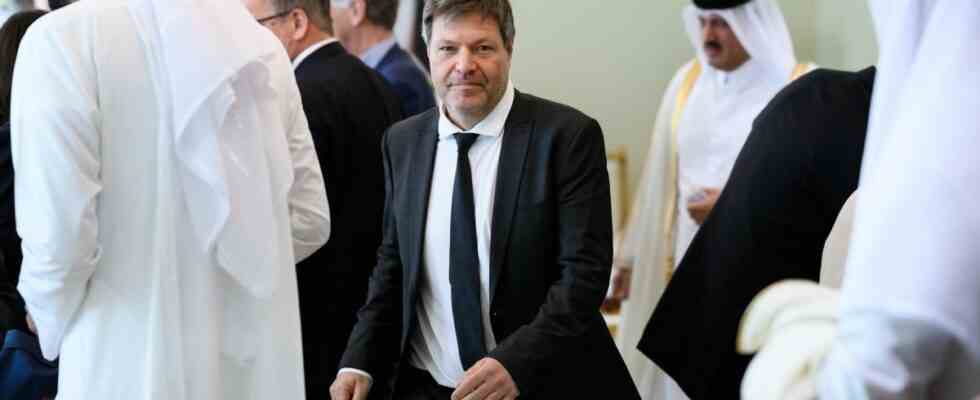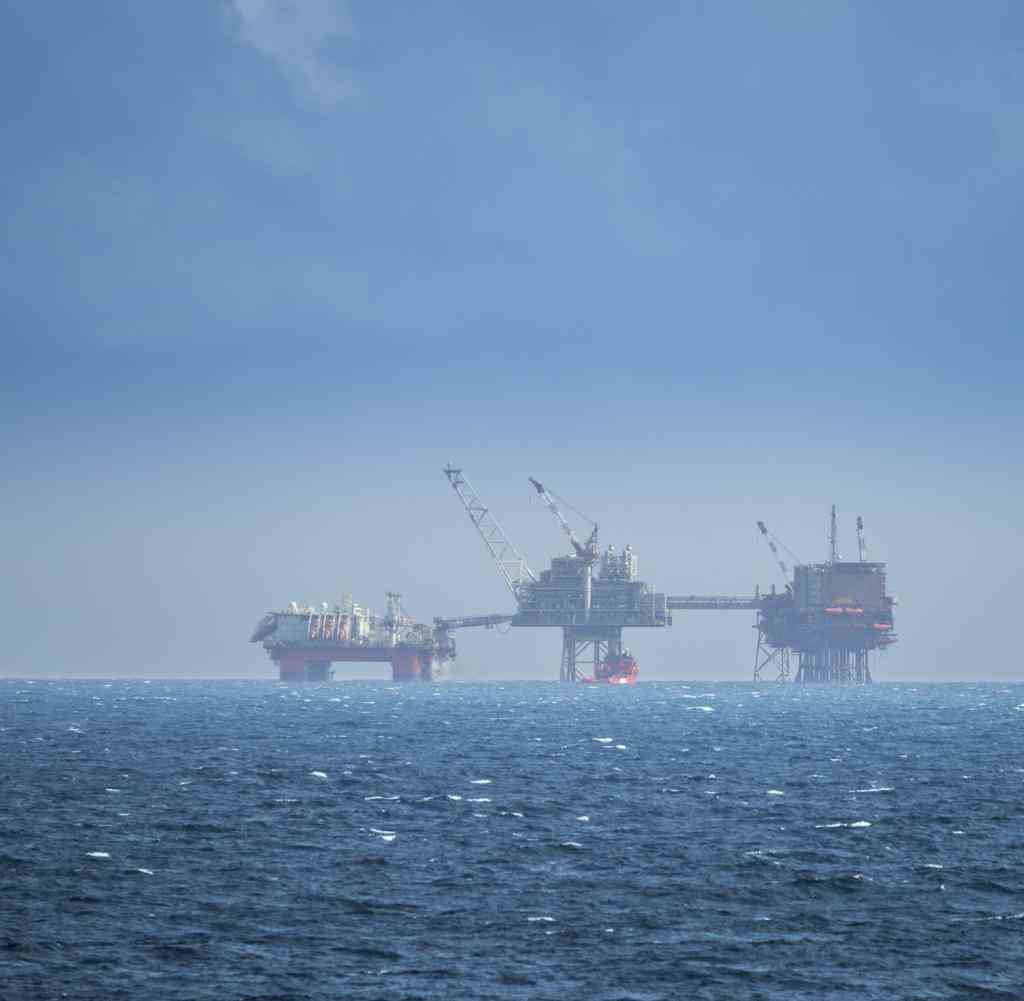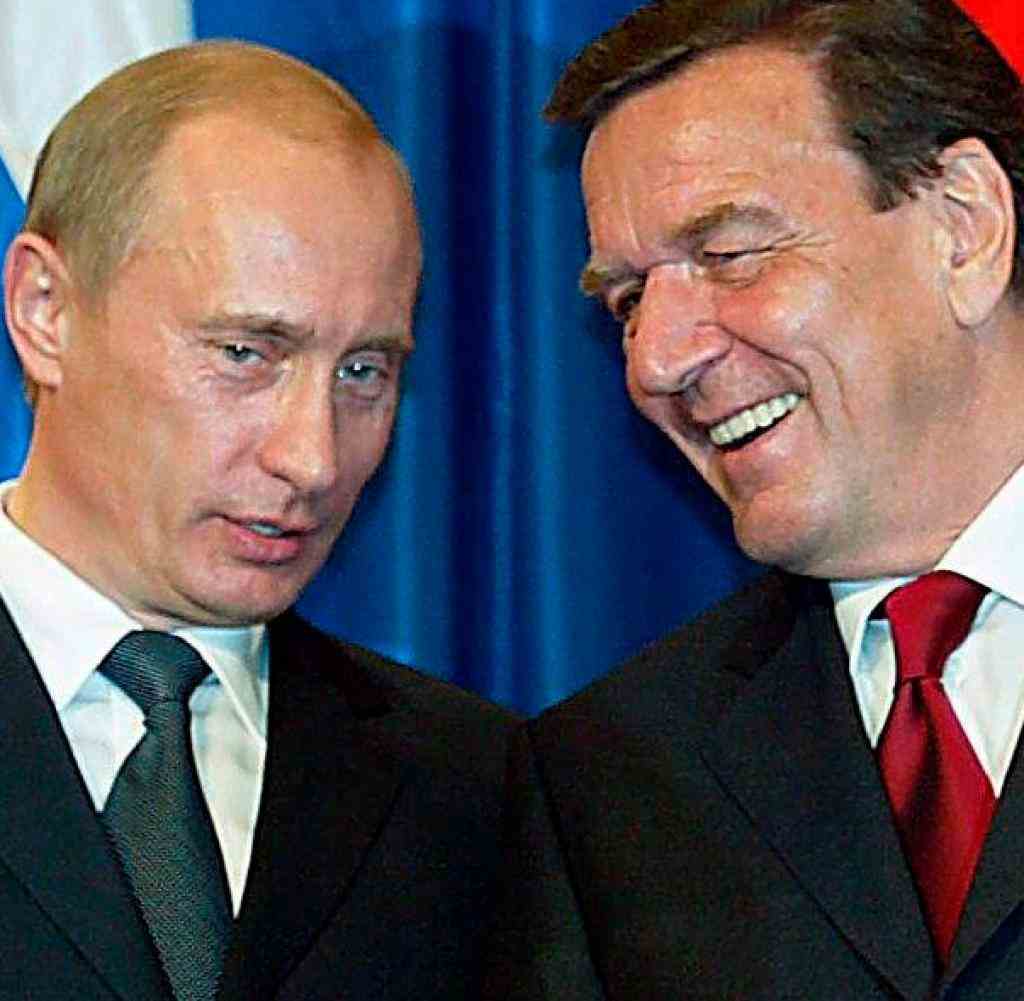Habeck concludes energy partnership with Qatar
Habeck in Qatar looking for an alternative to Russian deliveries
According to Federal Minister of Economics Robert Habeck (Greens), the supply of gas for Germany is not yet secured. Therefore, Habeck traveled to Qatar to reduce dependence on Russian gas.
In order to reduce dependence on Russian gas, the economy minister has turned to Qatar. During his visit to the Gulf, Habeck concluded a “long-term energy partnership”. His expectations have been exceeded.
BEconomics Minister Robert Habeck (Greens) has agreed to cooperate with the Emirate of Qatar in the search for alternatives to Russian gas, which, among other things, is promising the delivery of liquefied natural gas (LNG). In talks with the Emir of Qatar, a “long-term energy partnership” was decided between the two countries, Habeck said in Doha. It is now up to the companies accompanying the minister in a business delegation to the Gulf to negotiate the contracts for additional LNG supplies. In addition to Habeck, representatives from RWE, Eon and Uniper, among others, traveled to the Middle East at the weekend.
The energy partnership means “in the best case scenario, that we get contractual guarantees that something can also be delivered with the expansion of the European and, above all, the German infrastructure,” said Habeck. The expansion of the infrastructure means in particular the German LNG terminals that have so far been missing, which are now to be built as quickly as possible.
“It makes no sense to build terminals and gas pipelines through which no gas flows,” said the minister. Up until now, planning and construction have taken too long. “We are working under great pressure to use all legal options to speed this up,” said Habeck.
The contracts should be designed in such a way that deliveries take place as soon as the terminals are completed. Exact delivery quantities and periods of time were also discussed with the Emir, but Habeck did not want to name them when asked.
Qatar is one of the world’s largest suppliers of natural gas and intends to double its production capacity again from 2025. “Maybe it can be done a bit faster,” said Habeck. However, the partnership is not designed to replace dependency on Russia with dependency on Qatar. “We need diversification and that means: one country or one region does not replace another,” said the minister.
While up to now more than 50 percent of the gas consumed in Germany has come from Russia, in future each region will be responsible for a maximum of ten to 20 percent of the import volume, so that they can be replaced if a supplier fails.
“We have to position ourselves broadly,” stressed Habeck. Before his trip to the Gulf, the minister had already visited Norway to negotiate additional gas supplies with the government there. Canada and the USA are also considered possible suppliers.
Habeck said his expectations of the trip had been exceeded, since the Qataris had also signaled that they wanted to work with German companies on climate protection projects. “The sun is shining, there is energy,” said the minister.
The emirate also wants to participate in the production of renewable energy. The minister is also aiming for such cooperation for the production of green hydrogen with the United Arab Emirates, which he intends to visit on Monday.
Habeck emphasized that in the talks with the Emir and other government officials he also addressed the poor human rights situation in Qatar. “The Qatari side said: We know that we have to do something about it,” said Habeck. But one must also acknowledge that there is initial progress, Qatar is the first Arab country to have one minimum wage introduced and workers’ rights strengthened. There are no armaments deliveries as a counter-trade for the willingness to supply Germany with additional gas.
“We didn’t talk about arms deliveries, the armaments industry played no role in the talks,” said Habeck. Existing export applications from the emirate would be approved or rejected by the Ministry of Economy within the framework of the applicable laws.
“Everything on shares” is the daily stock exchange shot from the WELT business editorial team. Every morning from 7 a.m. with our financial journalists. For stock market experts and beginners. Subscribe to the podcast at Spotify, Apple Podcasts, Amazon Music and deezer. Or directly by RSS feed.



